As an experienced fitness coach with over a decade of expertise, I've delved into extensive research to identify the most effective supplements for lowering cortisol levels.
Based on my findings, adaptogens like ashwagandha and rhodiola, show promising results in contributing to managing cortisol levels for an optimal stress response.
Continue reading to understand the qualities of an effective cortisol supplement and how it can support your fitness goals and overall health.
Quick Summary
- The best herbal supplements for reducing cortisol levels include Ashwagandha, Bacopa, and Ginkgo.
- For non-herbal options, Fish oil, prebiotics, and multivitamins are recommended.
- A cup of green tea offers approximately 25 mg of L-theanine and can mildly enhance sleep, induce relaxation, and reduce stress levels.
- In my opinion, consuming a balanced diet, engaging in regular exercise, and taking supplements with natural ingredients can naturally lower cortisol levels and improve overall well-being.
List of Effective Supplements To Lower Cortisol

When choosing a supplement to reduce cortisol levels, you can choose between herbal options with adaptogenic herbs and non-herbal alternatives. Let's explore these dietary cortisol supplements in detail.
Herbal Supplements
1. Ashwagandha (Withania Somnifera)
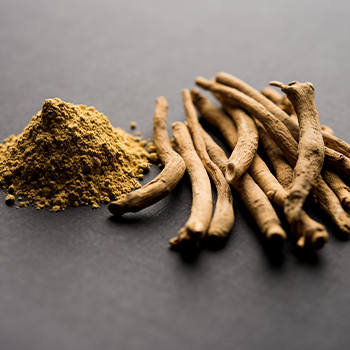
Ashwagandha, also known as Indian ginseng, is a traditional Ayurvedic remedy recognized for its adaptogenic properties, providing a calming effect.
A study published by the National Institute of Health indicates that Ashwagandha is effective in alleviating stress, particularly anxiety and chronic stress [1].
Based on experience, Ashwagandha has helped our team feel less stressed and improved our mood and sleep, making it a great choice for keeping our bodies in balance, especially during workouts.
2. Arctic Root (Rhodiola Rosea)

Arctic root, also known as roseroot and golden root, is a traditional Chinese medicinal herb with adaptogenic and nootropic properties that stimulate memory and cognitive ability.
Rhodiola, recognized for reducing cortisol and increasing mood-improving brain chemicals, is particularly beneficial for stress-related fatigue and mood disorders, as per the National Institute of Health [2].
I've personally found that this supplement enhances dopamine and serotonin sensitivity, resulting in improved mental performance, focus, and mood.
Check out our article about the best Rhodiola Rosea supplements.
3. Bacopa (Bacopa Monnieri)
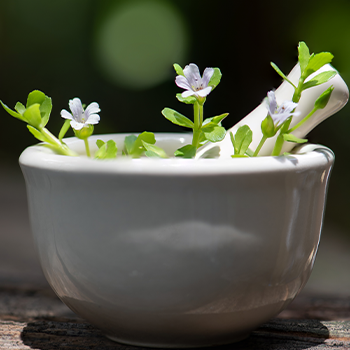
Bacopa, also known as Brahmi, is an Ayurvedic herb used for treating mental disorders, digestive issues, as well as heart and lung functions.
A study published by the National Institute of Health indicates that bacopa may contribute to alleviating fatigue by lowering cortisol levels and improving mood [3].
While it is known to enhance dopamine and serotonin sensitivity, our team has experienced improved mental performance, focus, and mood over the months of taking it.
4. Ginkgo (Ginkgo Biloba)

Ginkgo, a popular adaptogenic herb, can help enhance stress resilience by counteracting the effects of cortisol and adrenaline.
While some studies suggest a minimal impact on memory enhancement or age-related mental decline prevention, it remains beneficial for managing stress [4].
In my experience, I've noticed that taking ginkgo has reduced symptoms of mood swings and contributed to better blood pressure.
5. Cordyceps (Cordyceps Sinensis)
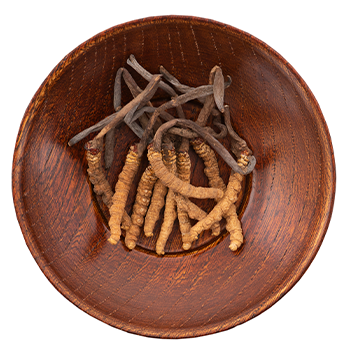
Cordyceps, a blend of caterpillar and fungus from traditional Chinese and Tibetan medicine, is known for enhancing performance and promoting longevity.
According to the National Institute of Health, cordyceps is beneficial for stabilizing stress hormones, improving muscle oxygenation for exercise, and combating inflammation [5].
Furthermore, it is considered one of the best dietary supplements; combining cordyceps with other adaptogens boosts energy and enhances adrenal function.
6. Schisandra (Schisandra Chinensis)
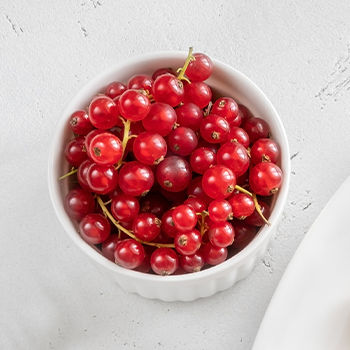
Schisandra, a herbal plant from Chinese medicine, is deemed effective in athletes for improving coordination and endurance, with observed cortisol reduction after strenuous physical activity.
Research from ScienceDirect suggests that athletes undergoing heavy physical activity reported decreased cortisol levels and increased performance with Schisandra supplements [6].
However, further clinical trials are necessary to confirm its benefits for less physically active individuals.
Non-herbal Supplements
1. Phosphatidylserine
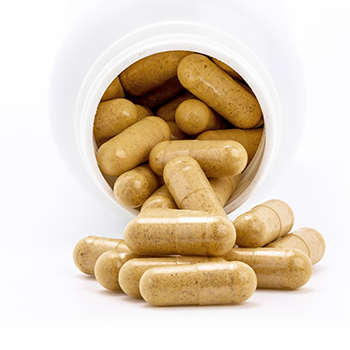
Phosphatidylserine, a natural fatty substance in your body, aids the nervous system in transmitting signals.
Phosphatidylserine supplements are FDA-approved for cognitive decline and dementia and are renowned for enhancing memory.
Additionally, a study published by the National Institute of Health reveals that it helps to lower cortisol levels, thus improving overall sports performance [7].
2. Fish Oil (Omega 3-fatty Acids)
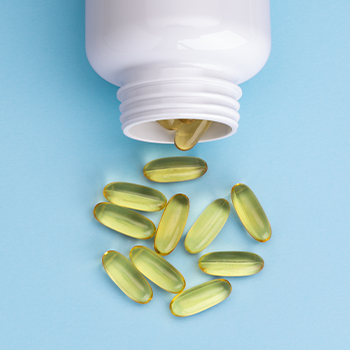
Fish oil, a popular dietary supplement rich in omega-3 fatty acids, including ALA, EPA, and DHA, supports various bodily functions, from cell activity to muscle growth.
Research from the National Institute indicates that DHA, or docosahexaenoic acid, found in fish oil, is crucial for maintaining normal brain function in adults.
Furthermore, the study suggests omega-3's potential to enhance mental well-being in individuals and have a positive impact on managing blood sugar levels through improved insulin sensitivity [8].
3. L-theanine
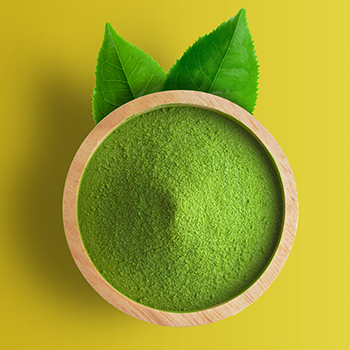
L-theanine, a stress-relieving non-protein amino acid, is primarily found in natural green tea powder. It effectively lowers cortisol levels, promoting a calming effect.
Many health enthusiasts consume green tea to improve sleep, induce relaxation, and lower stress levels. Research from Science Direct also suggests it can help enhance mental focus and cognitive functions [9].
However, a cup of green tea provides only about 25 mg of L-theanine. For a higher dose, consider L-theanine supplements.
4. Prebiotics
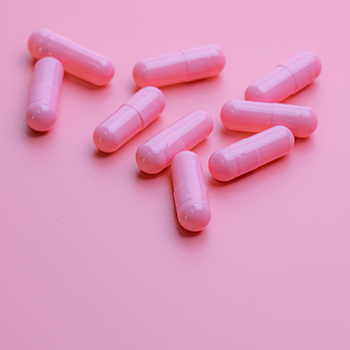
Prebiotics, dietary insoluble fibers, nourish good symbiotic bacteria in your gut. According to research from ScienceDirect, adequate prebiotic intake for a balanced microbiome lowers stress response in healthy individuals [10].
When the pathogenic and symbiotic microbiota in your gut is in harmony, your brain is relaxed, ensuring hormonal balance.
Adding prebiotics to our daily routine helped us feel calm and focused, which is important for handling our intense workouts successfully.
5. Vitamins, Minerals

Research from WebMD suggests that supplementation with multivitamins can effectively lower cortisol levels after prolonged physical exertion.
Moreover, vitamin C and B vitamins, along with minerals like zinc and magnesium, are found to inhibit cortisol release, providing a relaxing effect [11].
Adding daily multivitamin intake to our routine has significantly boosted our team's fitness progress by ensuring we receive essential nutrients often lacking in our regular diet.
Importance of Maintaining Normal Cortisol Levels
Maintaining normal cortisol levels is crucial as it regulates various body processes, including stress response, nutrient metabolism, and inflammation suppression.
"Cortisol supports overall health. It helps us wake up, gives us energy during the day, and lowers at night to help us sleep and rest."
-Yufang Lin, MD, FACP, FAAP (Center for Integrative Medicine, Cleveland Clinic)
Furthermore, research from the Cleveland Clinic indicates that consistently elevated levels due to chronic stress can result in health issues such as weight gain, anxiety, and chronic illness [12].
As a fitness trainer, I've discovered that maintaining a healthy diet and lifestyle is essential for controlling cortisol levels, and incorporating cortisol supplements can expedite results.
Can You Reduce Cortisol Levels Naturally?

Yes, you can naturally reduce cortisol levels. Health experts emphasize that, while supplements may offer minimal benefits, lifelong lifestyle and diet changes play a more significant role.
To lower cortisol, consider incorporating these lifestyle changes:
Relaxation and Meditation practices
A study from the National Institute of Health indicates that mindfulness meditation is crucial for stress reduction, preventing, managing, and treating stress-induced diseases caused by elevated cortisol levels [13].
Improved Sleep
Consistent sleep patterns can markedly decrease stress hormone levels, whereas prolonged sleep deprivation can have the opposite effect, leading to an increase in these hormones in the bloodstream.
Physical activity
Research from Harvard Medical School indicates that regular exercise can help lower adrenaline and cortisol levels by stimulating endorphins, the chemicals in the brain that naturally make you happy [14].
For dietary changes to reduce the stress hormone:
High fiber intake
Regular intake of refined sugar may result in high cortisol levels. However, getting a high fiber-rich, complex carb diet can help you boost your gut health, mental functions, and hormonal balance.
Dark chocolate
Research from the National Institute of Health has indicated that eating dark chocolate each day for two weeks can reduce cortisol and catecholamines in chronically stressed individuals [15].
Turmeric
Curcumin, the other term for turmeric, has a positive effect in treating depression and anxiety because it can elevate neurotransmitters such as serotonin and dopamine, which are both potent antioxidants and anti-inflammatory substances, according to WebMD [16].
Cortisol related article: Does Caffeine Increase Cortisol?
FAQs
Does GABA Lower Cortisol?
Yes, GABA (Gamma-Aminobutyric Acid) is known to help lower cortisol levels. GABA is a neurotransmitter that plays a key role in reducing neuronal excitability throughout the nervous system. It has calming effects on the brain and can help to reduce stress and anxiety.
What Are Cortisol Blockers?
Cortisol blockers are supplements that help block hormone cortisol, known for causing anxiety, among others health conditions. The benefits of cortisol blockers range from improving blood pressure, help control chronic stress, deals with weight gain, and stabilizing blood sugar levels.
Can Cortisol Cause Weight Gain?
Yes, cortisol can cause weight gain. Elevated cortisol levels can lead to several mechanisms that may result in weight gain, including increased appetite, fat storage, and muscle breakdown.
References:
- https://www.ncbi.nlm.nih.gov/pmc/articles/PMC3573577/
- https://www.ncbi.nlm.nih.gov/pmc/articles/PMC9228580/
- https://pubmed.ncbi.nlm.nih.gov/23788517/
- https://pubmed.ncbi.nlm.nih.gov/14737017/
- https://www.ncbi.nlm.nih.gov/pmc/articles/PMC3121254/
- https://www.sciencedirect.com/science/article/pii/S2772632023000181
- https://pubmed.ncbi.nlm.nih.gov/1325348/
- https://pubmed.ncbi.nlm.nih.gov/10479465/
- https://www.sciencedirect.com/science/article/pii/S0924224499000448
- https://www.ncbi.nlm.nih.gov/pmc/articles/PMC4410136/
- https://www.webmd.com/diet/features/what-vitamin-should-i-take
- https://my.clevelandclinic.org/health/articles/22187-cortisol
- https://pubmed.ncbi.nlm.nih.gov/23724462/
- https://www.health.harvard.edu/staying-healthy/exercising-to-relax
- https://www.ncbi.nlm.nih.gov/pmc/articles/PMC4350893/
- https://www.webmd.com/depression/turmeric-depression
About The Author
You May Also Like
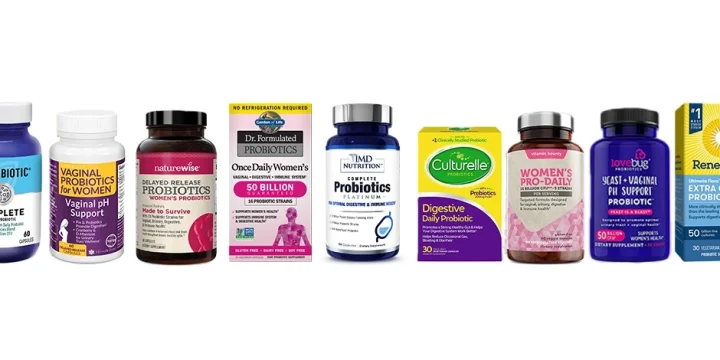



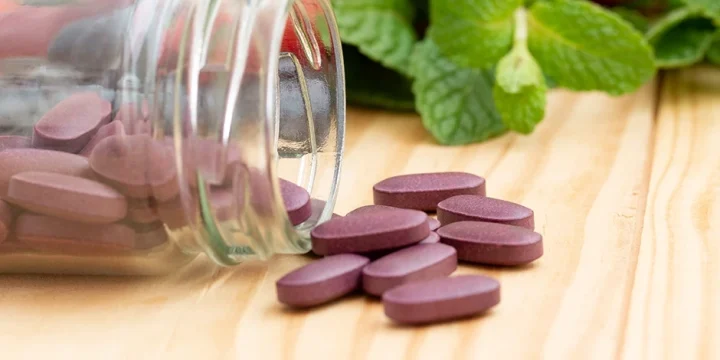


I have been working to stay healthy for a long time and I know that the balance of my cortisol levels is really important. It can help reduce inflammation, anxiety, stress, anger…and it just has a really positive effect on the body. This is why I wanted to try Arctic Root because I saw it advertised as one of the strongest supplements on the market.
I have found incorporating Ashwagandha into my daily nutrition beneficial for lowering cortisol levels during stressful times.